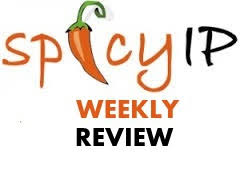 Topical Highlights
Topical Highlights
Dainik Jagran Sues Telegram for Copyright Infringement: Are Platforms or Group Admins Liable for Unlawful Speech on Closed Online Forums?

Image from here
Divij wrote on the matter of Dainik Jagran suing Telegram for copyright infringement for the circulation of ‘e-papers’ through open Telegram Channels. He analyzes the order that granted an interim injunction in the case of Jagran Prakashan Limited v. Telegram that directed Telegram to provide information about the subscribers/ owners of certain Telegram Channels that were allegedly circulating online versions of the Dainik Jagran newspaper. Discussing the intermediary liability concerning copyright infringement of freely available newspapers, Divij notes that while circulation of restricted-access online newspapers is likely to constitute copyright infringement, intermediaries like Telegram can claim the ‘safe harbor’ protection available under Section 79 of the IT Act, 2000. It is noted that Telegram’s failure to respond to the plaintiff’s notice regarding infringement is likely to defeat the ‘safe harbor’ claim as it requires that the platform have no actual knowledge about the illegal/infringing activity. Then addressing the question of liability for unlawful content on closed forums or online groups, the Indian Government’s push for ‘traceability’ for unlawful content and the automatic assumption of liability for group administrators is discussed. In conclusion, it is stated that the determination of the intermediary’s liability in such cases is to be determined based on the control exercised over the content.
Staying the Post-Grant Revocation of Ibrutinib

Image from here
In a post co-authored with Praharsh Gour, Swaraj discusses the recent IPAB Order that stayed the post-grant patent revocation of Pharmacyclics’ Ibrutinib, an anti-cancer drug. When Ibrutinib’s patent was revoked in March 2020, its generic variant, Ibrunat, became legal, whereas the current IPAB order which has stayed the revocation creates a risk for Ibrunat becoming illegal again. In March 2020, the Patents Controller had upheld Laurus Labs’ challenge of Ibrutinib’s patent on grounds of lack of inventive steps. Pharmacyclics appealed the revocation and the IPAB passed the current interim stay order against the same. The post considers the IPAB’s power to stay the patent opposition decisions by the Controller. Given the Board’s recognition in Shreedhar Milk Foods v. Vikas Tyagi that interim orders must be passed to avoid instances of injustice after considering a prima facie case, balance of convenience, irreparable hardship, and injury, the post highlights that the rare and exceptional case required for granting interim relief is not present in this case. Addressing the counterfactual scenario, the post argues that this Order should also give generic manufacturers an ability to approach the IPAB for interim stays in cases where the Patents Controller upholds a patent’s validity, given the IPAB’s low threshold for any aggrieved party to ask for a stay order.
Thematic Highlight
Antitrust Scrutiny in Patent Licensing Disputes: An Alternative Approach to Delhi HC’s Decision in Monsanto v. CCI
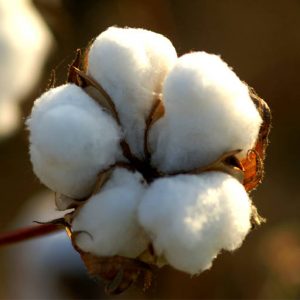
Image from here
In a guest post, Abhilasha Nautiyal discusses the issue of antitrust scrutiny in patent licensing disputes in light of the Delhi High Court’s decision in Monsanto v. CCI. The post analyzes whether the Patents Act and the Competition Act both regulate patent licensing terms that may be anti-competitive; if there is a ‘sectoral regulator’ to decide patent licensing disputes and the need to avoid conflicting opinions from different bodies on the same legal and factual issues. Chapter XVI on compulsory licensing and Section 140 on ‘avoidance of certain restrictive conditions’ are relevant from the perspective of competition law, through which the legislature balanced the rights granted and the limitations on them within the Patents Act. The Competition Act under Section 3(5) allows for imposing reasonable conditions necessary to protect rights granted under the Patents Act. Abhilasha argues in favor of the two-step approach where only licensing terms found to be ‘restrictive under the Patents Act need to be scrutinized for unreasonableness under the Competition Act, which is similar to the decision given in CCI v. Airtel on sectoral regulators. Highlighting the need to avoid conflicting opinions, Abhilasha recommends the two-step approach.
Other Posts
SpicyIP Fellowship: Is Sub-Licensing Contemplated under the Indian Copyright Act? – A Response

Image from here
In response to Latha’s post on whether sub-licensing is contemplated under the Indian Copyright Act, Nikhil Purohit submitted a post for the SpicyIP Fellowship. Nikhil argues that sub-licensing of copyright is permissible under the Indian Copyright Act in opposition to Latha’s claim that it is not. Breaking down Section 30 of the Copyright Act, it is argued that the provision contemplates that the owner of the copyright may grant any interest to a licensee as long as it is done in writing. The post goes on to offer two possible interpretations – first, a differentiation between primary and secondary licensing and second, a limited agency relationship, that can be understood to allow sub-licensing. It is argued that primary licensing between a copyright owner and a licensee is an inherent statutory right whereas a sub-license granted to a third party is guided by the explicit stipulation between the copyright owner and licensee. It is argued that the determination of existence of an agency relationship between parties that would allow sub-licensing is to be based on whether the relationship satisfies the principles of agency. Thus, it is claimed that Section 30 of the Act contemplates a right to sub-license as it contains the authority to confer rights on persons authorized by the license.
Video Games, User-Generated Content and Copyright

Image from here
In a guest post, Sankalp Jain wrote on the copyright issues related to video games and user-generated content (UGC) where he discusses the copyright framework of the video game ‘Dreams’ and points out that the Indian copyright law is inadequate to respond to diverse UGC which takes the form of fan-creations. The Indian position is that video games consist of independently copyrightable components and should not be viewed as single works of authorship. Using the example of Dreams, a Game Creation System (GCS), the post elaborates on the various copyright protections that the user-created content can receive and how viewing the components of the content created individually, as the Copyright Act does leave open questions concerning the monetization of the work and ownership of the work. Taking the idea forward that this content creation is akin to fan-creations, the post considers the fair dealing exception this could receive under Section 52(1)(a) of the Copyright Act and suggests that a clear statutory provision needs to be created taking into consideration the nature of such UGC and the rights they have in an ever-expanding digital world.
Lexstructor’s Live Webinar on ‘Impact of COVID-19 on Patent Laws in India and the Trade-Related Aspects on Potential Drugs’ [June 28]
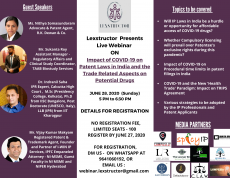 We informed the readers about the upcoming Lexstructor’s webinar on ‘Impact of COVID-19 on Patent Laws in India and the Trade-Related Aspects on Potential Drugs’. Points of discussion include intellectual property laws and affordable access to potential COVID-19 drugs, compulsory licensing, procedural time limits in patent filings in India, COVID-19’s impact on the TRIPS Agreement and various strategies to be adopted by the IP professionals and patent applicants. The webinar is scheduled on June 28, between 5 PM to 6:30 PM and has 100 seats available. Further details can be found in the post here.
We informed the readers about the upcoming Lexstructor’s webinar on ‘Impact of COVID-19 on Patent Laws in India and the Trade-Related Aspects on Potential Drugs’. Points of discussion include intellectual property laws and affordable access to potential COVID-19 drugs, compulsory licensing, procedural time limits in patent filings in India, COVID-19’s impact on the TRIPS Agreement and various strategies to be adopted by the IP professionals and patent applicants. The webinar is scheduled on June 28, between 5 PM to 6:30 PM and has 100 seats available. Further details can be found in the post here.
Texas A&M School of Law Launches the GIFTED Program with O.P. Jindal Global University
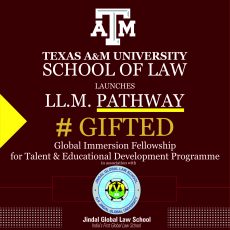 We also informed the readers about the launch of Texas A&M School of Law and O.P. Jindal Global University’s GIFTED Program that allows students to spend one semester in each university, and earn an LL.M degree from either university. The GIFTED Program allows students to spend their fall semester at Jindal and spring semester at Texas. Upon successful completion of their courses, students can earn their LL.M degree from Texas A&M Law and by combining the non-transferred credits from the fall and JGU credit for the student’s spring coursework, students will be eligible to earn an LL.M from JGU as well. Further details can be found in the post here.
We also informed the readers about the launch of Texas A&M School of Law and O.P. Jindal Global University’s GIFTED Program that allows students to spend one semester in each university, and earn an LL.M degree from either university. The GIFTED Program allows students to spend their fall semester at Jindal and spring semester at Texas. Upon successful completion of their courses, students can earn their LL.M degree from Texas A&M Law and by combining the non-transferred credits from the fall and JGU credit for the student’s spring coursework, students will be eligible to earn an LL.M from JGU as well. Further details can be found in the post here.
Other Developments
Decisions from Indian Courts
Madras HC rules against monopoly over the term ‘Magic Masala’ in ITC-Nestle stand-off [June 10, 2020]
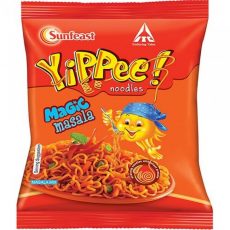
Image from here
In ITC Ltd. v. Nestle India Ltd., a single-judge bench of the Madras High Court decided against the plaintiff ITC, who had sought a permanent injunction against Nestle to prevent them from using the mark ‘Magic Masala’, which ITC claimed had achieved distinctiveness. The judgment held that for a mark to be called as a distinctive mark, the same should be unique and different from the rest in the milieu and that it would not need any additional proof to establish distinctiveness. After elaborating on whether the mark ‘Magic Masala’ can be given protection as a descriptive mark, the judge concluded that it was not a descriptor of the product and was only a laudatory epithet and the same cannot be given monopoly or protection. Further, it was held that the terms ‘Magic’ and ‘Masala’ are commonly used in the packaged food industry by different manufacturers and it would be unfair to confer monopoly over the same expression. Holding that there was no similarity between the two products that could lead to confusion, the Court refused to grant relief to the plaintiff.
Bombay HC rules domain name registrars can suspend the registration of domain names but cannot block access to them [June 12, 2020]

Image from here
In Hindustan Unilever Limited v. Endurance Domains Technology LLP & Ors, a single-judge bench of the Bombay High Court held that domain name registrars such as Endurance, GoDaddy, Porkbun, etc., can only suspend the registration of certain domain names but cannot be expected to block access to them. The plaintiff had brought the matter to court after it came across domain names that were fraudulently and deceitfully using variants of HUL’s domain name (www.hul.co.in). The judge recognized that the entire process of domain registration is automated and requires no manual intervention. It was observed that registrars can suspend domain names, but the blocking of access should be undertaken by a government agency such as the Department of Telecommunications. Further, since tools such as VPN can be used to circumvent such blocking of access, holding the registrar liable would put them at risk of contempt of court orders when they are unable to effectively block access. An order was passed to allow the plaintiff to communicate with the domain registrars and request without the intervention of the Court for suspension of any infringing domain name.
Delhi HC imposes costs of INR 50,000 in patent case over mala fide filing of applications [June 16, 2020]
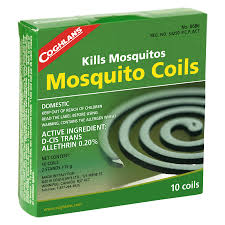
Image from here
In Shogun Organics Ltd. v. Gaur Hari Guchhait, a matter concerning a suit for patent infringement over D-Trans Alletherin, (Patent No. IN 236630) an insecticide, a single-judge bench of the Delhi High Court had passed an order on 14th August, 2019 granting a permanent injunction in favor of the plaintiff Shogun Organics. The present suit was filed concerning the same matter wherein the plaintiff requested the Court to pass an order directing the defendant to sell the unused stocks of D-Trans Alletherin to the plaintiff, concerning which orders were already passed on 11th June, 2020. Given the multiplicity of applications filed regarding matters already dealt with and the non-disclosure of the same to the Court hearing the current matter, it was held by the judge that the current application was not bona fide and INR 50,000 as costs was imposed on the plaintiff.
Delhi HC grants interim injunction restraining use of the mark ‘TATAAR & SONS’ [June 17, 2020]
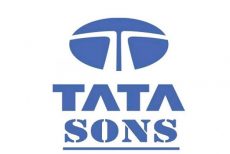
Image from here
In Tata Sons Pvt. Ltd v. Dilip Kumar Ghotiya, a single-judge Delhi High Court bench passed an order granting interim injunction in favor of the plaintiff in a case of trademark infringement of the ‘TATA’ mark. It was claimed by the plaintiff that the defendant was using a deceptively similar mark ‘TATAAR & SONS’ to sell their products in the same categories as TATA products such as tea, coffee, spices, etc. While the defendant argued that the Delhi High Court did not have territorial jurisdiction because the defendant was based in Rajasthan, the plaintiff showed that the defendant’s products were available in Delhi too through online trade. Holding that the plaintiff made out a prima facie case in its favor and that the balance of convenience tilted towards the plaintiff the judge granted an interim injunction to avoid irreparable loss to the plaintiff.
Delhi HC grants interim injunction restraining use of ‘Pulse’ candy trademark [June 18, 2020]
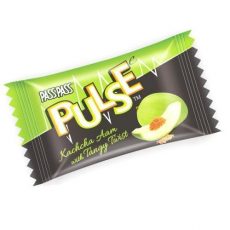
Image from here
In DS Confectionery Products Ltd. v. Amber Confectionery Pvt. Ltd., a single-judge bench of the Delhi High Court granted an interim injunction in favor of DS Confectionery Products to prevent the infringement of its trademark ‘Pulse’ candies and the copyright held in the tagline ‘Tangy Twist’ by the defendant Amber Confectionery. The plaintiff averred that the defendant adopted the tagline ‘Tangy Twist’ and trade dress, color, and get up which is deceptively similar to that of the plaintiff’s product in order to cause confusion as to the source of the product. The Court declared that there is a prima facie case and balance of convenience in favor of the plaintiff and not granting the interim injunction would jeopardize the commercial and statutory interests of the plaintiff which would cause irreparable harm. In particular, the order restrained the defendant from using the tagline ‘Tangy Twist’.
IPAB holds Mylan’s SOXPLAT trademark to be deceptively similar to Sun Pharma’s OXIPLAT [June 18, 2020]
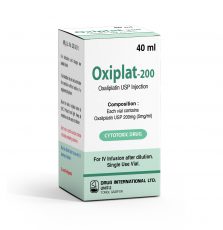
Image from here
In Sun Pharma Laboratories Ltd v. Agila Specialties Pvt Ltd, the IPAB ruled that Mylan’s SOXPLAT mark for a drug treating colon cancer is deceptively similar to Sun Pharma’s OXIPLAT drug used in the same treatment. Sun Pharma argued that Mylan’s mark is structurally, visually and phonetically similar to Sun Pharma’s prior used and prior registered trademark. It was argued by the plaintiff that there was extensive commercial use of the trademark OXIPLAT by Sun Pharma and the same had acquired goodwill and reputation while Mylan argued that the mark OXIPLAT is an abbreviation of a generic salt and has already been used in the market. It was noted in the order that the onus to prove similar marks are already in the market was on the party taking such a defense and the mere presence of such marks in the Register of Trade Marks is not proof of its use. Holding that Sun Pharma had a strong case with respect to use of the mark and was prior in the adoption of the trademark, the judge ruled in Sun Pharma’s favor and ordered the removal of the offending marks from the Trade Marks Register
Other News from around the Country
- Bombay HC passed an order extending the life of interim orders passed in all matters, including IP matters, during the COVID-19 lockdown till 15th July. This is the third such extension granted since 26th March.
- Delhi HC passed an order stating that the Indian IP Office (IPO) public notice dated 20th May with respect to due dates for completion of various acts/proceedings, filing of reply/document, payment of fees, etc stands withdrawn and that all timelines for various matters falling after 15th March is to be decided by the Court. The IPO and Copyright Office also issued a public notice stating the same.
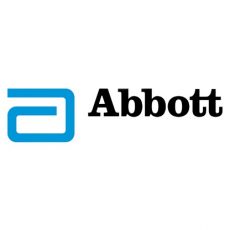
Image from here
- Abbot Healthcare approached the Delhi High Court to seek clarification regarding if Paragraph 32 of the Drug (Prices Control) Order (DPCO) 2013, which exempts newly patented drugs from price control, is self-invocatory and has automatic application.
- Central Drugs Standard Control Organisation (CDSCO) approved the restricted emergency use of Glenmark’s Favipiravir for treating mild cases of COVID-19. Favipiravir became off-patent in 2019, thereby allowing the free production of its generic versions.
- CDSCO also gave permission to Hetero and Cipla to manufacture and market the antiviral drug Remdesivir for restricted emergency use. Gilead Sciences, the patent holder for Remdesivir has already entered into royalty-free non-exclusive licensing agreements with Cipla and Hetero.
- Madhya Pradesh Government approached the Supreme Court challenging the Madras HC’s ruling against the state’s demand for the ‘basmati’ geographical indication (GI) tag for the rice grown in 13 of its districts.
- Kashmir saffron has been granted GI tag by the GI Registry. Kashmir saffron holds the unique distinction of being the only variety of saffron grown at an altitude of 1600-1800 m above sea level.
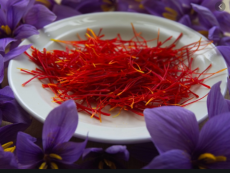
Image from here
- Nandita Saikia wrote about the colonial vestiges of copyright law. Focusing on the criminal provisions of the Copyright Act, Nandita argues for the differentiation in copyright crimes to ensure that disproportionate punishments are not levied in cases of copyright infringement.
- IPRMENTLAW conducted a virtual roundtable conference on the topic ‘Need to revamp the Copyright Act?’ yesterday on the occasion of eight years passing since the promulgation of the Copyright Amendment Act, 2012.
News from around the World
- In the General Council Meeting of the WTO, India advocated in favor of the flexibilities offered by the Trade-Related Aspects of Intellectual Property Rights (TRIPS) to effectuate access to medicines and vaccines required to fight the COVID-19 pandemic.

Image from here
- Trademark offices around the world see an increase in coronavirus related trademark applications. Marks include terms such as Covidgilant, COVID Couture, Covidiot, Covid Clean etc.
- The US Patent and Trademark Office (USTPO) has announced a COVID-19 prioritized examination program that will accept petitions to advance the initial examination of applications for marks used to identify qualifying COVID-19 medical products and services.
- A WTO panel found Saudi Arabia to be in violation of international law by actively supporting the operation of a private TV station ‘beoutQ’ that was involved in content and IP theft of Qatar-owned ‘beIN’ broadcaster.
- WHO begins conducting clinical trials for dexamethasone, a steroid, as a potential treatment for COVID-19. Dexamethasone is a generic off-patent drug used in the treatment of auto-immune disorders.
For regular updates on IP news and opinions related to COVID-19, please visit our COVID-19 & IP Updates page (also accessible from the Resources section on our website).
